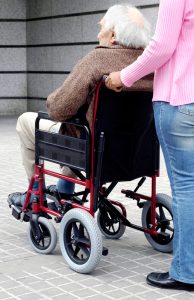Assessing the need:
If your loved one or Elder is showing signs of inability to cope with day to day activities it does not necessarily mean it is time to move them to an elderly care facility or nursing home but may rather be time to consider implementing a Home Care Assistant.

Warning signs:
1. Forgetfulness: Forgetting to take medication or forgetting that medication has already been taken and taking too much can be extremely dangerous. Look at the date the prescription was filled and check to see whether or not any medication has been taken. Alternatively do a pill count and follow up a few days later. Is she/ he also forgetting to switch off the stove or to keep Doctors’ appointments?
2. Poor vision: How long has it been since your Elder had an eye exam or new glasses? This could be especially dangerous if your Elder is still driving. Are there any new dents or scratches on the car or garage walls?
3. Unusual weight loss or lack of energy: Is food left to decay in the refrigerator and or are there expired items in the grocery cupboard. Is she/ he eating enough/ correctly?
4. Unclean clothing, body odour, mouth odour, dirty or long nails, unwashed hair are all warning signs that personal hygiene care is not being taken care of. A simply adjustment like a shower stool, non-slip mats or bath rails could make a difference, but it is unlikely to solve the issue entirely.
5. Unexplained bruises or pain when moving. Arthritis or painful joints can make the simplest tasks like buttoning up a shirt become almost impossible.
6. Mental & emotional warning signs such as becoming easily angered, excessive crying, repetitive questions or stories, forgetting new information, becoming paranoid or suspicious, loss of interest in daily activities or personal interests.
7. Swollen legs, ankles or feet could signify decreased circulation or serious health problems.
8. Unclean household: Does the house smell musty, are there accumulated dirty dishes, garbage, dead or dying houseplants or any obvious fire hazards?
9. Daily business is neglected: Has the post box been emptied and the mail opened. Have the bills been paid? Are cheques legible?
10. Difficulty with walking, balance and mobility: Does she/ he have trouble getting up from a seated position?
Once you know that there is a problem it is time to start talking to your Elder sooner rather than after a crisis has occurred. One of the most frightening prospects for Elders is the thought of losing their independence and having to leave their home. For this reason it is important to approach the subject in a non-patronising and non-threatening manner. Approach your Elder with conversation and discuss possible reasons and solutions to the problems they are experiencing.
How do you know if Home Care is the right option for your Elder?
Home Care involves non-medical support in the comfort of the home environment. If your Elder requires constant monitoring for an acute medical condition or increased pain control for a terminal illness then this may be better managed in a 24 hour care facility. However if the Elder prefers to stay in the comfort of the home environment and needs only minor assistance and monitoring as well as companionship and encouragement with day to day activities then Home Care could be the most practical solution both for your Elders well-being and for your own peace of mind.
Console Care Agency is based in Kwa Zulu Natal (KZN), Durban, South Africa (SA)

